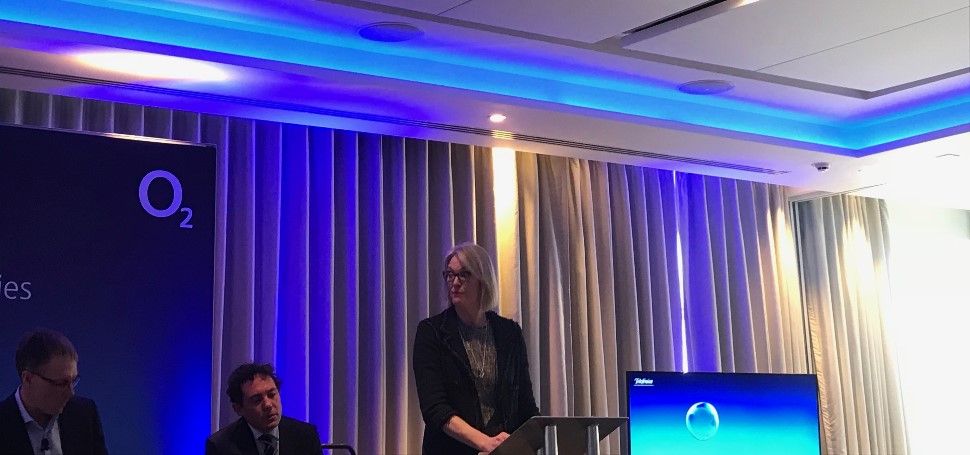Digital minister pledges to eliminate barriers to 5G deployment
Margot James says she wants to work with mobile operators and local government on 5G

Sign up for breaking news, reviews, opinion, top tech deals, and more.
You are now subscribed
Your newsletter sign-up was successful
Minister for Digital Margot James has reiterated the government’s ambition to be a leader in 5G technology and says she is committed to breaking down barriers to deployment in her role.
James succeeded Matt Hancock, who was promoted to Secretary of State for the Department for Digital, Culture, Media and Sport (DCMS), in January having previously served the Department for Business, Energy & Industrial Strategy (BEIS).
Mobile operators have continually complained about difficulties with obtaining planning permission and dealing with local authorities and private landlords. They claim this could threaten the UK’s 5G prospects and want more rights.
Speaking at the launch of a 5G report commissioned by O2, James suggested that one of the reasons she had been appointed at DCMS was because of her work with BEIS.
Government 5G
“We can work better together across departments and that’s probably one of the reasons I was moved across because I have great respect for those at BEIS,” she said. “One of the things we have in common is that we both rely on the Department for Housing, Local Communities and Government to bust down these barriers.”
She suggested that digital infrastructure should receive as much support as the clamour for new housing such is its importance.
“I don’t think [digging up streets and deploying masts] will be as unpopular as it once was,” she explained. “We have established a barrier-busting taskforce in government to make it easier for [mobile operators] to rollout networks.”
Sign up to the TechRadar Pro newsletter to get all the top news, opinion, features and guidance your business needs to succeed!
James spoke of the importance of the recently announced 5G trials and said it was already looking at the next phase of the programme, including greater cooperation between local authorities and operators.
A new local area group, comprising landowners, local authorities, regulator Ofcom and industry, will allow for the development of local plans for connectivity, reducing the inconsistencies in policies around the country.
These initiatives will seek to educate councils on the importance of connectivity to the communities and that this should be prioritised over short term financial gain.
“We will be developing a programme to get local public sector buildings to host masts and infrastructure,” she explained, adding that the full fibre challenge has increased awareness.
“It’s getting local authorities to bid for money for fibre to roll out. I want to see more money go into that programme because it’s getting local authorities to participate and understand about the technology.”
James admitted there was still a lot of work for government to do, but wanted the mobile industry to be encouraged. A Future telecoms Infrastructure Review will be published next summer and the industry is invited to participate.
“The telecoms [companies]have a crucial role here to help develop a long-term investment environment,” she said. “We want to have this debate now while we’re still developing policy.
“We know collaboration will be key if we are to achieve our 5G ambitions.
Want to find out more about 5G? Check out our dedicated 5G hub!
- Check out the best mobile deals for March 2018
Steve McCaskill is TechRadar Pro's resident mobile industry expert, covering all aspects of the UK and global news, from operators to service providers and everything in between. He is a former editor of Silicon UK and journalist with over a decade's experience in the technology industry, writing about technology, in particular, telecoms, mobile and sports tech, sports, video games and media.